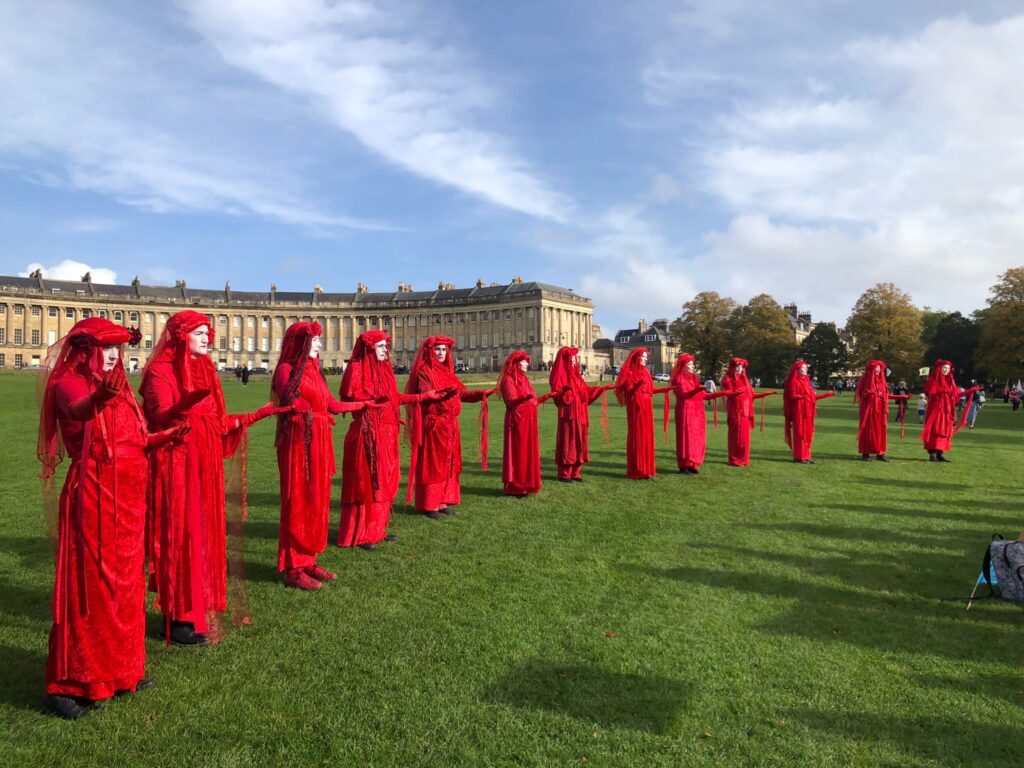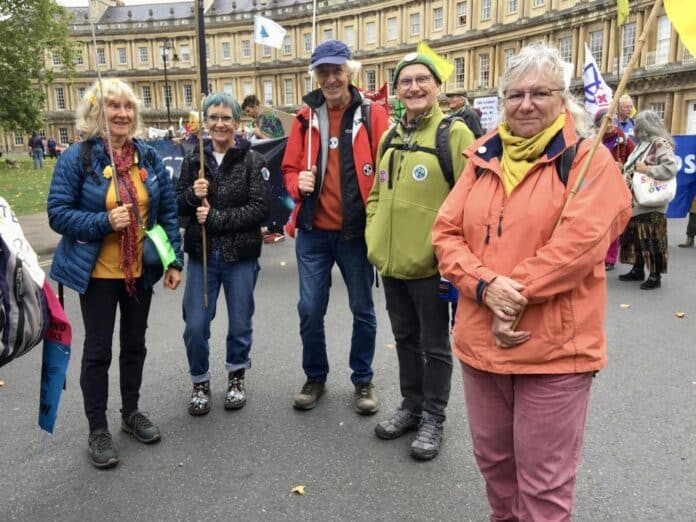Extinction Rebellion Wimborne joined dozens of other environmental and social justice groups from across the South West in Bath last Saturday for a “Unite To Survive” event.
“Our aim was to demand action because the cost of living crisis, social injustice, and climate and nature emergencies are all linked,” said Peter Aldous of Extinction Rebellion Wimborne.
Other groups involved included Christian Climate Action, Surfers Against Sewage, Stop Rosebank, Parents for Future, Scientists for Extinction Rebellion, Friends of the Earth and Greenpeace.
They gathered in the city and processed peacefully through the streets.





A brief overview of the climate crisis
The climate crisis refers to the urgent and complex global environmental issue resulting from the rapid and ongoing changes in Earth’s climate patterns, primarily driven by human activities. It is characterised by the following key aspects:
- Global Warming: The Earth’s average temperature is increasing due to the enhanced greenhouse effect, primarily caused by the release of greenhouse gases, such as carbon dioxide (CO2) and methane (CH4), from activities like burning fossil fuels, deforestation, and industrial processes.
- Extreme Weather Events: Rising global temperatures lead to more frequent and severe weather events, including heatwaves, hurricanes, floods, and droughts, affecting ecosystems, infrastructure, and human lives.
- Melting Ice and Rising Sea Levels: The polar ice caps and glaciers are melting at an accelerating rate, causing sea levels to rise. This threatens coastal communities and ecosystems, increasing the risk of flooding and erosion.
- Ocean Acidification: The absorption of excess CO2 by the oceans is making them more acidic, which harms marine life and ecosystems, disrupting food chains and fisheries.
- Loss of Biodiversity: Climate change contributes to habitat destruction and shifts, causing many species to go extinct or migrate to new areas, disrupting ecosystems and the services they provide.
- Social and Economic Impacts: Vulnerable populations, particularly in low-income countries, are disproportionately affected by the climate crisis, facing food and water scarcity, displacement, and increased health risks.
- National and International Policies: Governments and international organisations are working to address the crisis through policies like the Paris Agreement, which aims to limit global warming to well below 2 degrees Celsius above pre-industrial levels.
- Renewable Energy and Sustainable Practices: Transitioning to renewable energy sources, such as solar and wind power, and implementing sustainable practices are key steps to mitigate the climate crisis.
The climate crisis represents a critical challenge that requires immediate action to reduce greenhouse gas emissions, adapt to the changes already underway and promote global cooperation to limit the severity of its impacts on the planet and its inhabitants.
If you would like your interests… published, submit via https://dorseteye.com/submit-a-report/
Join us in helping to bring reality and decency back by SUBSCRIBING to our Youtube channel: https://www.youtube.com/channel/UCQ1Ll1ylCg8U19AhNl-NoTg SUPPORTING US where you can: Award Winning Independent Citizen Media Needs Your Help. PLEASE SUPPORT US FOR JUST £2 A MONTH https://dorseteye.com/donate/







